This guide will help you cut through the noise. We’ve listed a list of the Top 12+ best currency wallets in 2026 that excel in security, usability, and features. Plus, we’ll break down how to choose the perfect wallet based on your goals, so you can make an informed decision and keep your assets safe.
Top 12+ best crypto wallets for users in 2026
There are two main types of crypto wallets: custodial and non-custodial
In a custodial wallet, a service like an exchange manages your private keys and controls access to your funds, making it easier to use but requires trust in the service provider. This wallet is better for people who want a simple, easy way to store crypto without worrying about security. They’re also helpful for active traders who need quick access to their funds.
Non-custodial wallets, on the other hand, let you control your private keys and your funds. This gives you more security and privacy, but you’re responsible for keeping your wallet safe. Non-custodial wallets are better for people who want more control over their crypto.
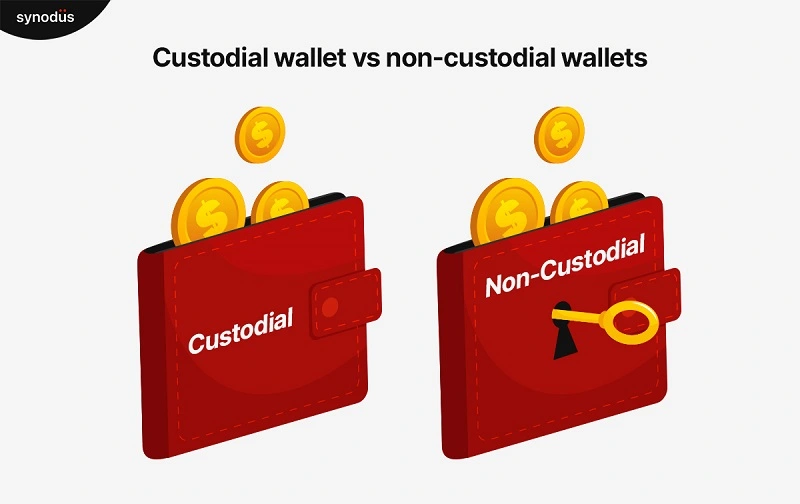
Below, we’ve listed the Top 12+ new crypto wallets in 2026, covering both custodial and non-custodial options. Each wallet has been carefully reviewed for its features, pros, and cons, helping you make an informed decision tailored to your needs.
| Crypto wallets | Wallet type | Price | Currency supported |
|---|---|---|---|
| Binance Wallet | Custodial | Free | Bitcoin, Binance Coin, +500 others |
| Coinbase Wallet | Custodial | Free | Bitcoin, Ethereum, Solana, Dogecoin, and ERC-20 tokens |
| Gemini Wallet | Custodial | Free | Bitcoin, Ethereum, Stablecoins, 150+ others |
| Kraken Wallet | Custodial | Free | Bitcoin, Ethereum, +120 others |
| Bitgo Wallet | Custodial | Custom Pricing | Enterprise-level assets |
| Bitmex Wallet | Custodial | Free | Bitcoin and a limited range. |
| MetaMask | Non-Custodial | Free | Ethereum, ERC-20 tokens. |
| Trust Wallet | Non-Custodial | Free | Bitcoin, Ethereum, +160 others. |
| Phantom Wallet | Non-Custodial | Free | Solana and Solana-based assets. |
| Trezor Wallet | Non-Custodial | $70+ | Bitcoin, Ethereum, +1200 others |
| SafePal Wallet | Non-Custodial | $50+ | Bitcoin, Ethereum, DeFi tokens |
| KeepKey Wallet | Non-Custodial | $49 | Bitcoin, Ethereum, +40 others. |
1. Binance Wallet – a great all-in-one option for traders

Binance Wallet is a custodial wallet integrated with the Binance exchange, supporting over 400 cryptocurrencies globally and 150 on its US platform. With advanced trading tools, it’s designed for users seeking a secure and feature-rich ecosystem for their crypto needs.
| Pros | Cons |
|---|---|
| – Supports over 500 cryptocurrencies – Low trading fees and fast transactions – Access to staking and DeFi features | – Complex features may overwhelm beginners – Centralized, relying on the Binance ecosystem – Regulatory issues in some jurisdictions |
Key features:
- Support over 500 cryptocurrencies, including Bitcoin (BTC), Ethereum (ETH), and Binance Coin (BNB).
- Provide advanced measures like Secure Asset Fund for Users (SAFU), 2FA, and cold storage for most assets.
- User Interface is designed for both mobile and desktop users, featuring intuitive navigation and robust trading tools.
Who is it best for?
Binance Wallet is ideal for active traders and investors looking to maximize their trading activities while taking advantage of staking and DeFi tools.
2. Coinbase Wallet – A beginner-friendly option
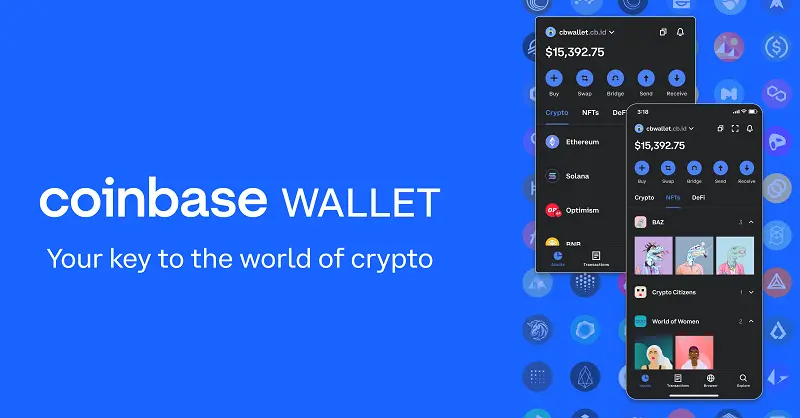
Coinbase Wallet is a custodial solution integrated with the Coinbase exchange. It is designed for ease of use, offering a seamless experience for storing, trading, and managing cryptocurrencies.
| Pros | Cons |
|---|---|
| – Beginner-friendly interface – Insurance for stored assets – Seamless integration with Coinbase | – Limited control over private keys – Higher transaction fees than competitors – Heavily reliant on the Coinbase ecosystem |
Key features
- Support over 100 assets, including popular choices like Bitcoin (BTC), Ethereum (ETH), and Litecoin (LTC).
- Provide two-factor authentication (2FA), insurance for funds, and cold storage to protect your assets.
- Design a simple and intuitive interface, perfect for anyone starting their crypto journey.
Who is it best for?
Coinbase Wallet is ideal for beginners who want a trusted custodial wallet tied to one of the most popular exchanges.
3. Gemini wallet – secure and beginner-friendly
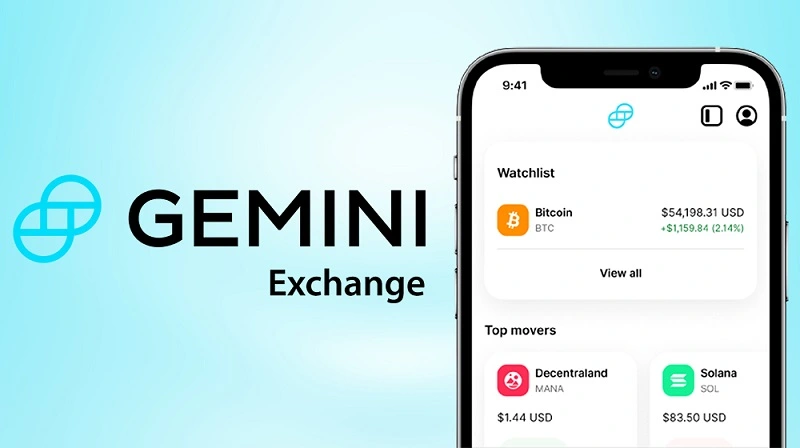
Gemini wallet is a custodial wallet that offers insured custody and a simple interface. It emphasizes security and compliance, making it a great option for cautious investors.
| Pros | Cons |
|---|---|
| – Insurance for stored funds – Beginner-friendly interface – Strong regulatory compliance | – Smaller range of supported coins – Higher fees compared to competitors – Limited defi or staking options |
Key features:
- Handle over 100 assets, including popular options like bitcoin (BTC), ethereum (ETH), and litecoin (LTC).
- Provide insured custody, two-factor authentication (2FA), and cold storage for better protection.
- Offer a simplified interface that’s perfect for cautious investors.
Who is it best for?
Gemini wallet is ideal for users who prioritize security, regulatory compliance, and a smooth onboarding experience.
4. Kraken wallet – a powerhouse for active traders
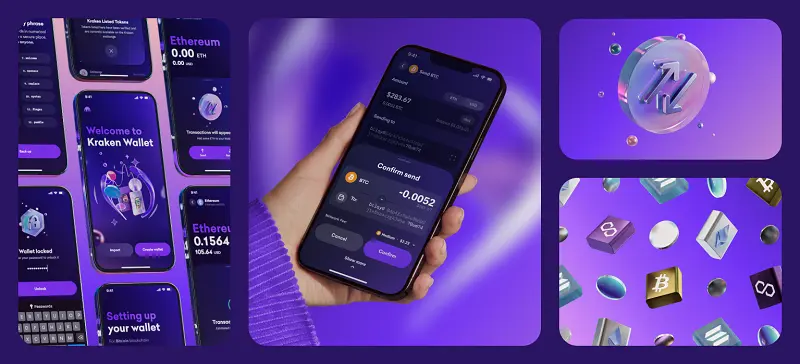
Kraken wallet, which integrates with the kraken exchange, lets you trade with high liquidity and explore a wide range of options, from spot trading to futures and staking.
| Pros | Cons |
|---|---|
| – Supports over 120 cryptocurrencies – Advanced trading and staking options – High liquidity for major assets | – Interface complexity for beginners – Centralized custody of private keys – Limited support for niche altcoins |
Key features:
- Let you trade over 120 cryptocurrencies, including polkadot (DOT), bitcoin (BTC), and ethereum (ETH).
- Enhance security with advanced encryption, cold storage, and real-time monitoring.
- Equip traders with tools for margin trading, staking, and high-volume transactions.
Who is it best for?
Kraken wallet is a perfect fit for experienced traders who need a secure and versatile platform for high-volume trading.
5. Bitgo wallet – enterprise-grade security
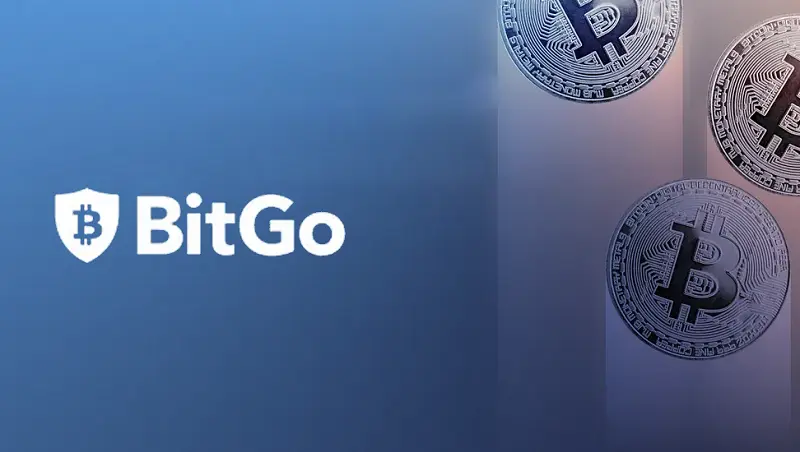
Institutions often choose Bitgo wallet for its secure custody and flexible access controls. It also offers reliable storage for managing crypto at scale.
| Pros | Cons |
|---|---|
| – Industry-leading security – Insured custody of funds – Multisignature authentication | – Tailored for institutions, not individuals – High costs for small-scale users – Limited accessibility for retail users |
Key features
- Focus on institutional-grade assets like bitcoin (BTC), ethereum (ETH), and stablecoins.
- Strengthen safety with multi signature authentication and insured custody.
- Adapt to institutional needs with customizable access controls and scalable storage.
Who is it best for?
Bitgo wallet is tailored for institutions and high-net-worth individuals seeking secure, scalable custody solutions.
6. Bitmex wallet – a specialized option for bitcoin traders
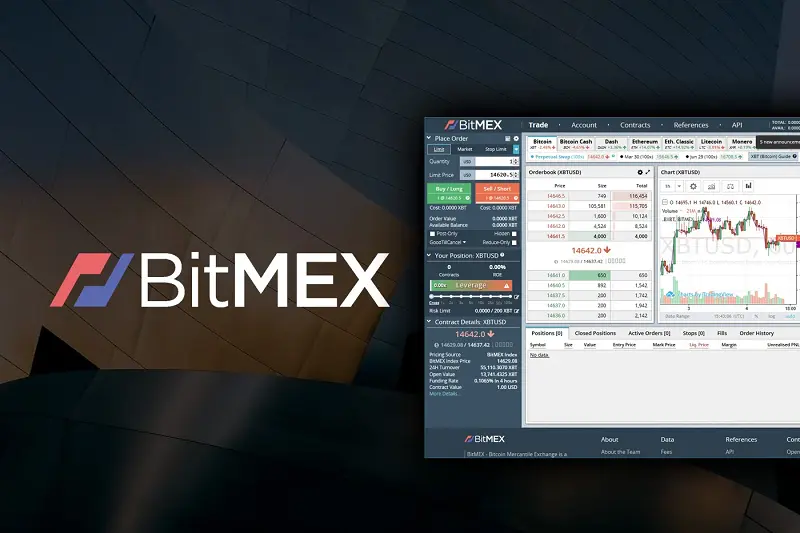
Focused on bitcoin, bitmex wallet delivers high-speed transactions and powerful margin trading tools. It’s an ideal choice for traders who specialize in bitcoin.
| Pros | Cons |
|---|---|
| – Optimized for bitcoin transactions – High-speed processing – Advanced trading tools | – Limited support for altcoins – Not suitable for beginners – Centralized private key management |
Key features
- Specialize in bitcoin (BTC) with limited support for other coins.
- Secure your bitcoin with multi signature wallets and cold storage.
- Provide a simple and intuitive interface that’s ideal for bitcoin-focused traders.
Who is it best for?
Bitmex wallet is perfect for bitcoin traders and advanced users seeking a fast, secure platform with a focus on margin trading.
7. Metamask – trusted gateway to Ethereum Dapps
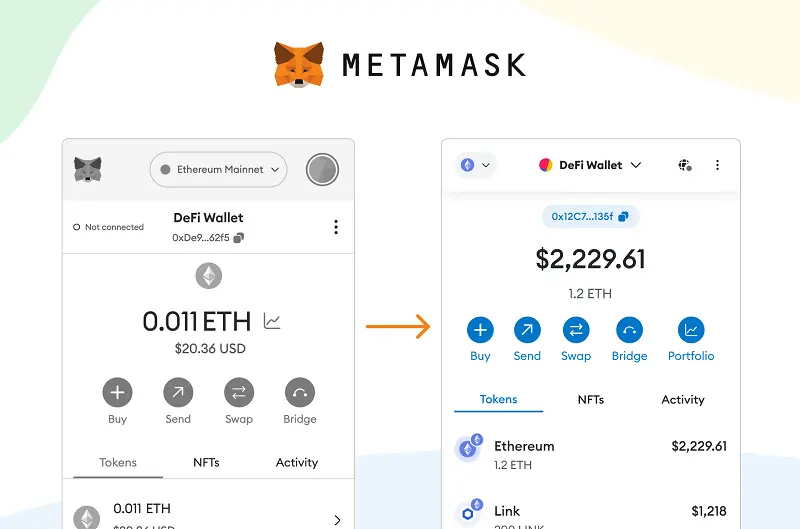
MetaMask is a non-custodial wallet ideal for users exploring decentralized finance (DeFi) and NFTs. Its browser extension offers seamless access to Ethereum’s ecosystem.
| Pros | Cons |
|---|---|
| – Free and open-source – Easy access to DeFi and NFTs – Local key storage for full control | – Limited multi-chain support – Requires technical know-how for beginners – Vulnerable to phishing attacks if misused |
Key features
- Work seamlessly with Ethereum (ETH), ERC-20 tokens, and Layer 2 solutions like Polygon.
- Store your private keys locally and offer recovery phrase backups for added security.
- Create a lightweight, efficient extension that lets users easily access DeFi and dApps.
Who is it best for?
MetaMask is perfect for DeFi enthusiasts and NFT collectors who value autonomy and easy dApp access.
8. Trust Wallet – a mobile-friendly non-custodial wallet

With Trust Wallet you can easily stake assets, dive into defi, and manage nfts, all while maintaining control over your keys. For those who prefer flexibility, it’s an ideal companion for crypto management on the go.
| Pros | Cons |
|---|---|
| – Supports over 160 cryptocurrencies – Free to use with staking features – User-friendly for beginners | – Limited to mobile devices – Less secure than hardware wallets – Limited customer support |
Key features
- Support over 160 cryptocurrencies, including binance coin (BNB), ethereum (ETH), and bitcoin (BTC).
- Secure your funds with private key encryption, biometric login, and recovery phrases.
- Offer a mobile-friendly interface that’s perfect for managing assets on the go.
Who is it best for?
Trust wallet is ideal for mobile-first users who want an all-in-one solution for staking, nfts, and crypto storage.
9. Phantom Wallet – optimized for Solana ecosystem
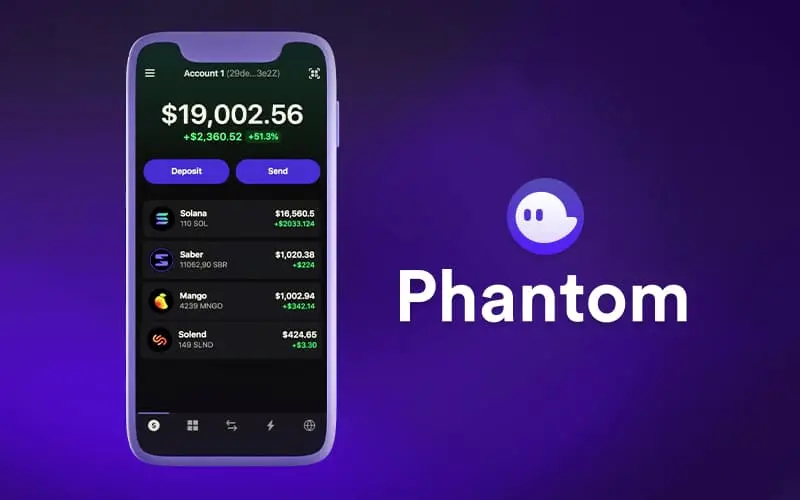
Phantom wallet is a non-custodial wallet dedicated to the solana blockchain. It provides fast transaction speeds, solana staking, and NFT compatibility, making it a favorite for solana users.
| Pros | Cons |
|---|---|
| – Built-in solana staking – Easy-to-use NFT management tools – Lightweight and fast browser extension | – Limited to the solana ecosystem – No multi-chain compatibility – Lacks hardware wallet support |
Key features
- Focus on solana (SOL) and tokens within its ecosystem.
- Protect your assets with encrypted private key storage and seamless integration with solana dapps.
- Design a lightweight, fast interface ideal for staking and NFT management within the solana ecosystem.
Who is it best for?
Phantom wallet is perfect for solana users who are focused on staking, nfts, and fast transactions within solana’s ecosystem.
10. Trezor Wallet – reliable hardware wallet for maximum security
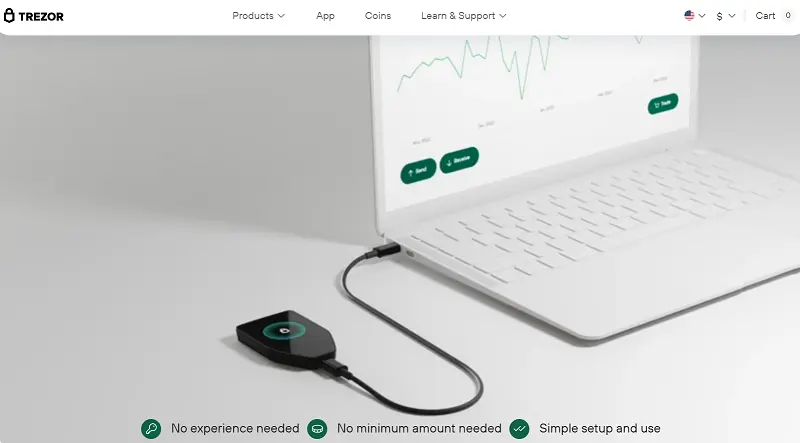
Trezor wallet is a hardware wallet built for long-term asset protection. By keeping your keys offline, it provides unmatched security against online threats.
| Pros | Cons |
|---|---|
| – Industry-leading hardware security – Supports over 1,200 cryptocurrencies – Open-source firmware | – Requires an upfront investment ($70+) – Limited portability compared to hot wallets – No built-in staking features |
Key features
- Support over 1,200 cryptocurrencies, including bitcoin (BTC), ethereum (ETH), and cardano (ADA).
- Protect your assets with PIN security, offline storage, and open-source firmware.
- Offer a straightforward interface that’s suitable for both beginners and advanced users.
Who is it best for?
Trezor wallet is ideal for users prioritizing security and those looking to securely store assets offline for the long term.
11. Safepal Wallet – a budget-friendly hardware and software option
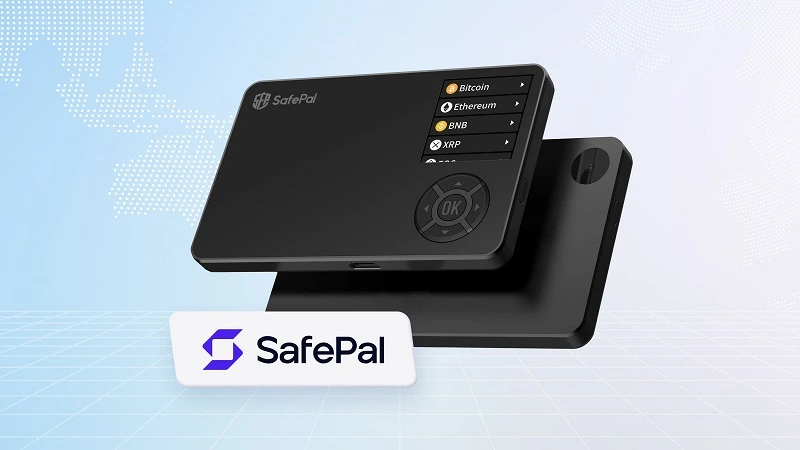
Safepal wallet combines hardware and software solutions for a hybrid approach. With its air-gapped technology, it delivers hardware-level security while enabling defi integration.
| Pros | Cons |
|---|---|
| – Affordable hardware wallet ($50+) – Integrated defi access – Air-gapped signing for security | – Smaller ecosystem compared to competitors – Not as intuitive for first-time users – Limited customer support |
Key features
- Support popular assets like bitcoin (BTC), ethereum (ETH), and a variety of defi tokens.
- Protect your funds with air-gapped signing technology for added security.
- Provide a mobile app that combines hardware security with user-friendly functionality.
Who is it best for?
Safepal wallet is perfect for budget-conscious users who want both hardware-level security and defi functionality.
12. Keepkey Wallet – simple cold storage at a low cost
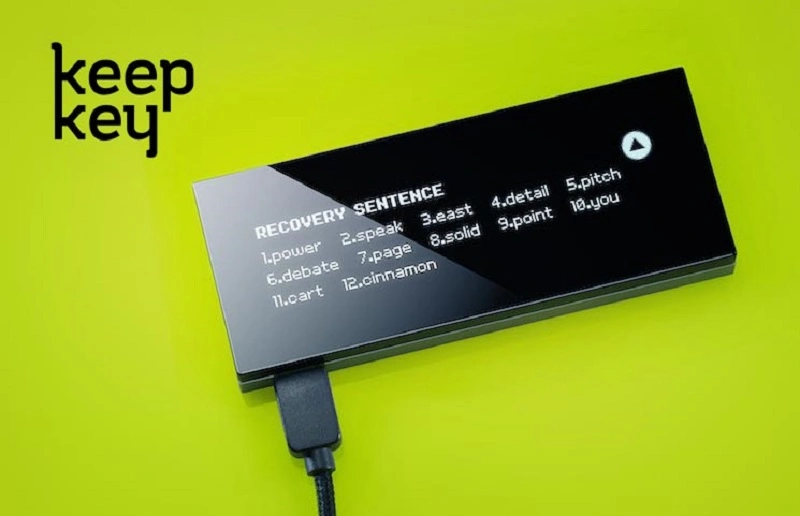
KeepKey Wallet is a sleek, cost-effective hardware wallet for users focused on long-term asset protection. Its integration with ShapeShift makes it easy to manage and exchange crypto directly.
| Pros | Cons |
|---|---|
| – Affordable pricing ($49) – Simple, beginner-friendly interface – Offline storage for added security | – Limited functionality beyond storage – Supports fewer cryptocurrencies – No staking or advanced features |
Key features
- Support Bitcoin (BTC), Ethereum (ETH), and 40+ other assets.
- Keep funds secure with offline cold storage and PIN protection.
- Offer a simple, streamlined interface perfect for long-term asset holders.
Who is it best for?
KeepKey Wallet is best suited for long-term holders and beginners seeking a straightforward cold storage solution.
How to choose a reliable crypto wallet that matches your needs?
Picking the right crypto wallet isn’t about choosing the “best” one—it’s about finding one that works for you. Are you a beginner dipping your toes into crypto? An investor safeguarding a diverse portfolio? Or perhaps a DeFi enthusiast? Your needs will dictate your perfect match.
Here’s how to figure it out:
What should you look for in a wallet?
Choosing the best crypto wallet to use can feel overwhelming, but breaking it down into key factors makes the decision much simpler. Think about these essentials when exploring your options:
1. Start with security
Think of your crypto wallet as a vault. Whether you’re holding Bitcoin or hundreds of altcoins, you need a wallet that protects your assets. For everyday use, hot wallets like Trust Wallet or Coinbase Wallet offer convenience with decent security. But if you’re holding large sums or planning for the long term, nothing beats the safety of hardware wallets like Trezor or SafePal, which keep your private keys offline.
2. Control vs. convenience
This is a big one. If you want complete control over your funds, non-custodial wallets like MetaMask or Trezor give you full ownership of your private keys. However, if you’re okay with letting a third party handle some of the heavy lifting, custodial wallets like Binance Wallet or Gemini Wallet are easier to manage and come with added support.
3. Does it support your coins?
Planning to hold just Bitcoin? A simple wallet like Bitmex Wallet may work. But if you’re investing in Ethereum, Solana, or DeFi tokens, opt for wallets with broader support like Trust Wallet or Phantom Wallet.
4. User-friendly design
A good crypto wallets should make your life easier, not harder. Beginners might appreciate the simplicity of Coinbase Wallet, while advanced users may prioritize features over ease of use, like with ColdCard or SeedSigner.
5. Fees and costs matter
Hardware wallets like Trezor or KeepKey require an upfront cost, while hot wallets like Trust Wallet or Phantom Wallet are free. But keep an eye on transaction fees—especially if you’re actively trading.
Tips for choosing the right wallet for your needs
Once you know what to look for, the next step is applying that knowledge. These tips can help you make a more confident decision:
1. Define your goals
Ask yourself: Why am I getting into crypto?
- If you value convenience, custodial wallets like Binance Wallet or Coinbase Wallet are great options.
- If control and security matter most, non-custodial wallets like MetaMask or Trezor give you full ownership.
- For long-term storage, hardware wallets like Trezor or KeepKey are highly secure.
2. Read user reviews
Before making a decision, see what other users have to say. Check out forums like Reddit (e.g., r/Bitcoin, r/BitcoinBeginners, r/Cryptocurrency) or platforms like Quora. These communities are full of real-world feedback to help you understand the pros and cons of different wallets.
Example from Reddit:
The best crypto wallets will depend on the users’ level of knowledge and experience.
Trezor is best for newcomers since it’s one of the easiest to use, and it’s open source.
ColdCard is one of the best for people who have experience and know what they’re doing, but it’s one of the least user friendly, especially for newcomers.
Blockstream Jade is one of the best in terms of being sort of easy to use and affordable, and it can be used airgapped.
SeedSigner is one of the best to use airgapped, and it’s open source, but it’s also somewhat DIY.
Ledger is best for people who like to trust shady corporations that lie to them. Seriously, don’t buy a Ledger. They use closed source code containing key extraction firmware.
3. Try before you commit
Start small. Load a small amount of crypto into the wallet to test its features and usability.
- Is the interface simple to use?
- Are the security measures easy to set up?
- Does it integrate with your preferred platforms?
Experimenting first helps you find a wallet you’re comfortable using without putting your assets at risk.
4. Think long-term
Your needs may change as you become more experienced in crypto. If you’re investing for the long haul, wallets like Trezor, Ledger, or SafePal offer robust security and are worth the investment. Look for wallets with strong reputations for reliability and adaptability.
Final Note: Choosing a wallet is about finding the right balance between convenience, control, and security. Take the time to explore your options and align your wallet choice with your personal goals. The perfect wallet for someone else might not be the best for you—trust your research and instincts.
Conclusion
In conclusion, the top 12+ best crypto wallets for 2026 offer a variety of options to suit different needs. If you’re looking for a simple, easy way to store crypto without worrying about security, Coinbase Wallet, Binance Wallet, Gemini Wallet, Kraken Wallet, Bitgo, and Bitmex are the right choices. For more control over your crypto, MetaMask, Trust Wallet, Phantom, Trezor, SafePal, and KeepKey are ideal options.
When choosing the right wallet, it’s important to consider factors like security, ease of use, and compatibility with your preferred cryptocurrencies. This will help you safely manage and grow your crypto investments in 2026.
How useful was this post?
Click on a star to rate it!
Average rating / 5. Vote count:
No votes so far! Be the first to rate this post.




